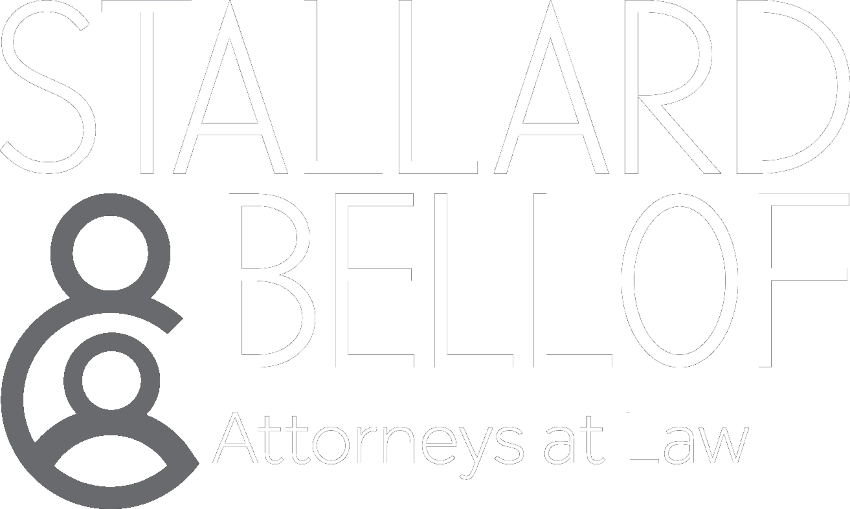Leading Family Law Attorneys in Charlotte
Tailored to protect your assets, wealth, and family. We offer you personalized guidance and discreet support, focusing on your unique challenges.
Focusing on Family Law Matters in North Carolina
Including child custody, child support, divorce, separation, spousal support, and more. We represent clients throughout the Charlotte and Mecklenburg County area by providing highly personalized legal services and a commitment to protecting our client’s legal rights and interests. Everyone’s circumstances are different – Our family lawyers listen to you to learn the unique details of your particular situation so they can help you understand your options and determine the most effective strategy for your case. Stallard & Bellof believes in a team approach to legal representation: attorneys and clients working together as partners to resolve family law matters. Client participation and input are essential to a successful relationship.
Our Attorneys

Carolyn Bellof
Carolyn is a Certified Family Law Specialist in North Carolina, a distinction only approximately 250 attorneys have. Carolyn has litigated many family law cases in Mecklenburg, Union, Gaston, and Cabarrus Counties.

Krista Stallard
Krista has spent the last twelve years practicing primarily family law, assisting clients with separation, divorce, custody, child and spousal support, and property division.
Compassionate Guidance Through Life's Legal Challenges
Navigating the challenging terrain of divorce, custody battles, child support, legal issues, and equitable distribution can be an incredibly isolating journey when you lack the right legal support.
At Stallard & Bellof Law Firm, we understand the emotional and legal complexities our clients face during this significant transitional period in their lives. Our family lawyers in Charlotte are here to make their journey less tumultuous and help them feel whole.
When you embark on a divorce and custody battle, it’s common to feel overwhelmed by uncertainty and fear. However, our experienced family law attorneys, Carolyn and Krista, are exceptional listeners and problem-solvers. They’ll provide legal guidance through every step of the process, ensuring you understand all the intricacies of your custody, divorce, and equitable distribution matters.
What truly sets Stallard & Bellof apart is our commitment to collaboration. Carolyn and Krista allow you to voice your thoughts and preferences, turning our relationship into a true meeting of the minds rather than a one-sided dictate.
Let Stallard & Bellof be your trusted allies in this challenging chapter of your life. Together, we’ll navigate the complexities of your legal matters, offering support, understanding, and expert guidance every step of the way.
"Whether you are negotiating a settlement or litigating a dispute, we're here to help. The dedicated attorneys at Stallard & Bellof have over 30 years combined experience assisting clients with their issues."
Practice Areas
The Law Office of Stallard and Bellof focuses almost exclusively on family issues in North Carolina
Representation
Our office represents clients throughout Charlotte and Mecklenburg County, including Dilworth, Plaza-Midwood, South End, South Park, Cotswold, Pineville, Steele Creek, Arboretum, Blakeney and Ballantyne. We also represent clients in Gaston County, Cabarrus County, and Union County.
Attorneys at Stallard & Bellof, PLLC are licensed to practice law in North Carolina.
Stallard & Bellof welcomes clients regardless of race, color, creed, religion, ethnicity, national origin, citizenship status, sex, gender identity or expression, sexual orientation, physical or mental ability, or age. Contact us for an initial consultation.
Articles

Understanding Legitimation and Paternity: Key Legal Insights
Explore the differences between legitimation and paternity, understand their legal implications, and learn when and how to establish these statuses to secure a child’s inheritance and parental rights.

Grandparents’ Rights After Divorce: What You Need to Know in North Carolina
Life changes can often lead to the need for relocation, whether it’s due to a new job, a desire to be closer to family, or other personal reasons. But what if you have a child custody order in place? At Stallard & Bellof, we often hear from parents wondering if

Can You Relocate with a Child Custody Order? Here’s What You Need to Know
Life changes can often lead to the need for relocation, whether it’s due to a new job, a desire to be closer to family, or other personal reasons. But what if you have a child custody order in place? At Stallard & Bellof, we often hear from parents wondering if

Can You Still Get Alimony If You Cheat on Your Spouse?
Divorce can be a difficult and emotional process, especially when infidelity is involved. If you or your spouse have had an extramarital affair, you might wonder, “Can you still get alimony if you cheat on your spouse?” Let us take you through the topic of alimony in North Carolina. What



























